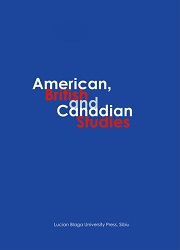Dualistic Vision in Virginia Woolf’s The Waves
Dualistic Vision in Virginia Woolf’s The Waves
Author(s): Loran GamiSubject(s): Metaphysics, Epistemology, Theory of Literature, British Literature
Published by: Editura Universitatii LUCIAN BLAGA din Sibiu
Keywords: dualism; ambivalence; actuality and potentiality; language and silence; narrativize; mysticism;
Summary/Abstract: The article focuses on Virginia Woolf’s novel, The Waves, a sui generis work, in which the writer explores metaphysical and epistemological issues such as the meaning of selfhood, time and identity as flux, silence and language, the self as defined by language, and other fundamental concerns. These topics are explored through a dualistic perspective. This duality permeates the entire structure of the novel through binary oppositions: the self as one/the self as plural; the lyrical/the novelistic; the mystical/the rational; narrative/formlessness; the embodied/the disembodied; potentiality/actuality; language/silence. Woolf’s ambivalent approach is also at work in the way she uses language in the novel. The urge towards a teleological existence prompts her characters to turn events into a narrative that would arrange and combine them into one thread. The present article, however, shows that in The Waves the very human propensity to turn experience into a coherent story is countered by the opposite perception that this narrativizing drive is only an illusion.
Journal: American, British and Canadian Studies
- Issue Year: 2021
- Issue No: 36
- Page Range: 49-66
- Page Count: 18
- Language: English
- Content File-PDF

